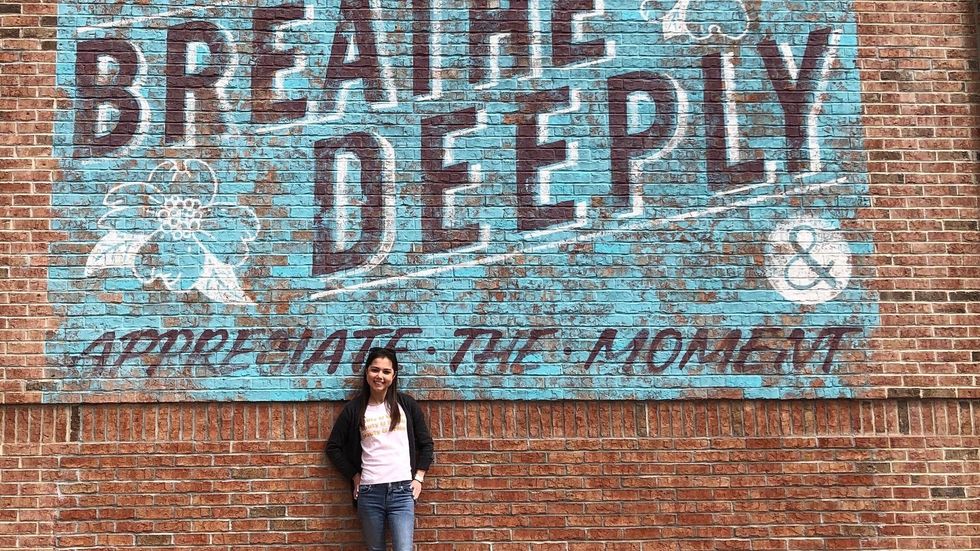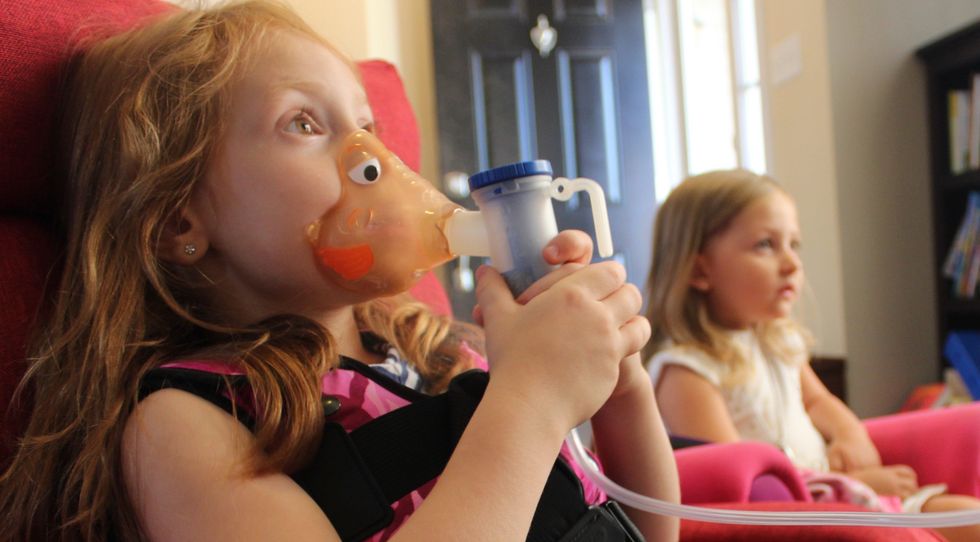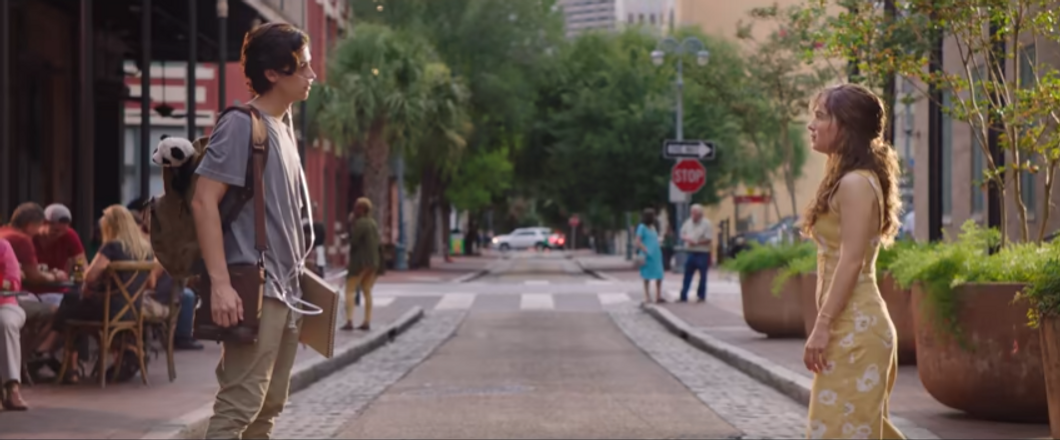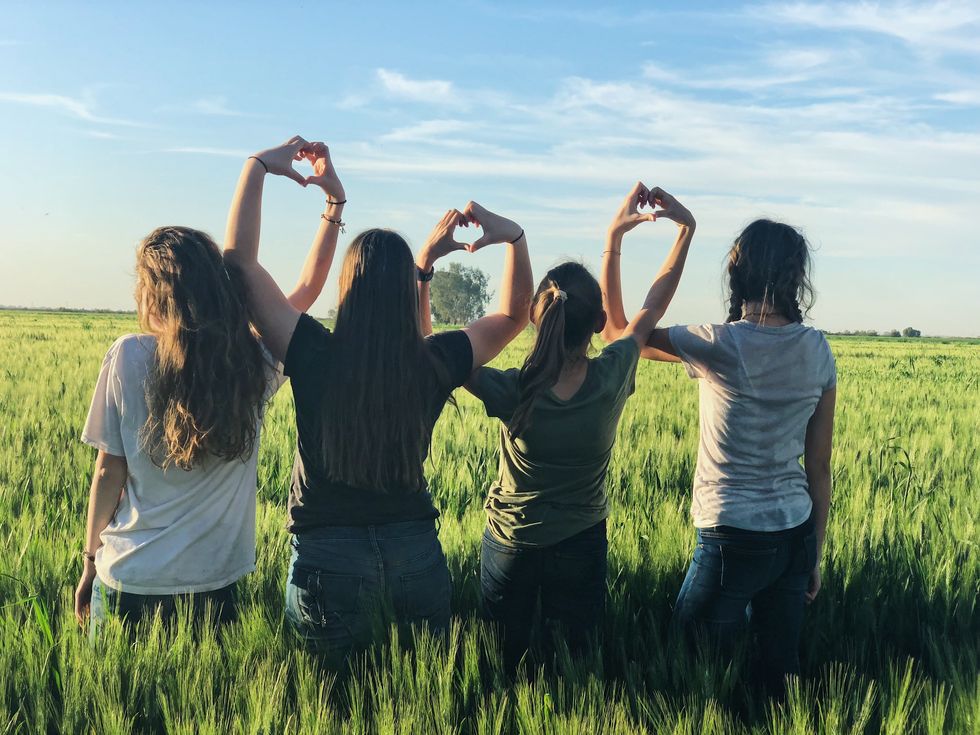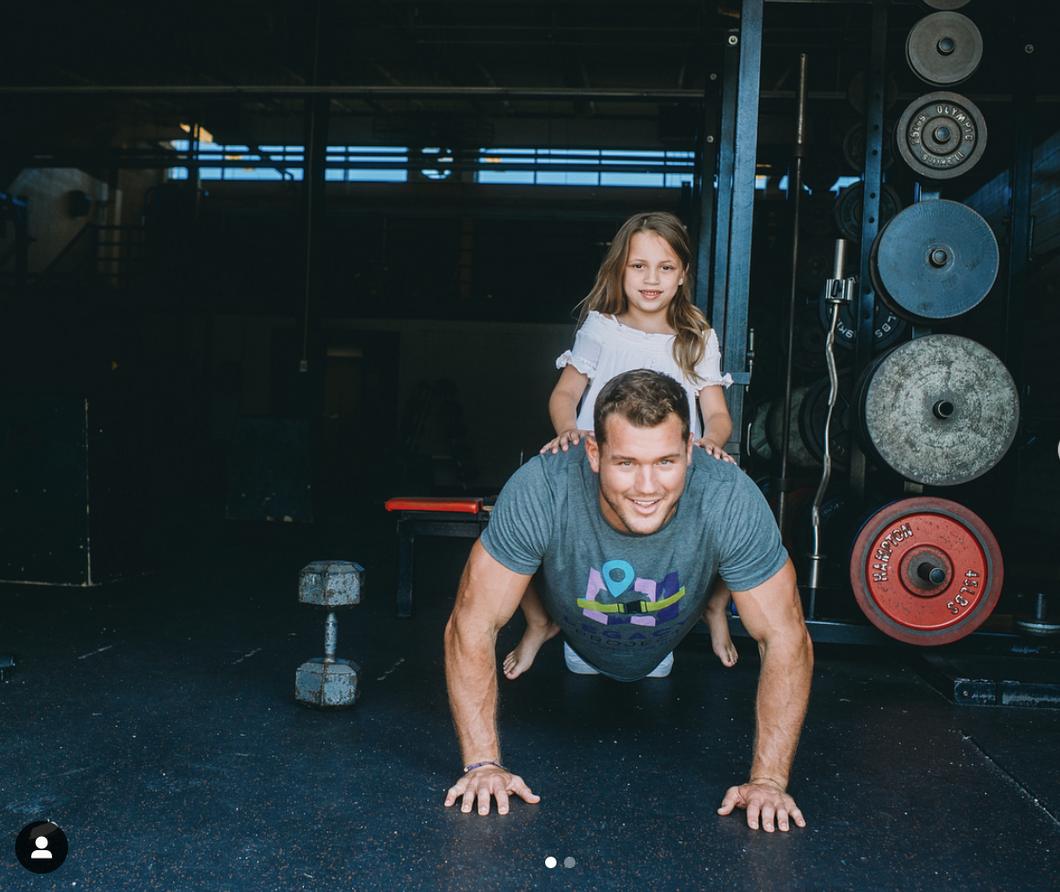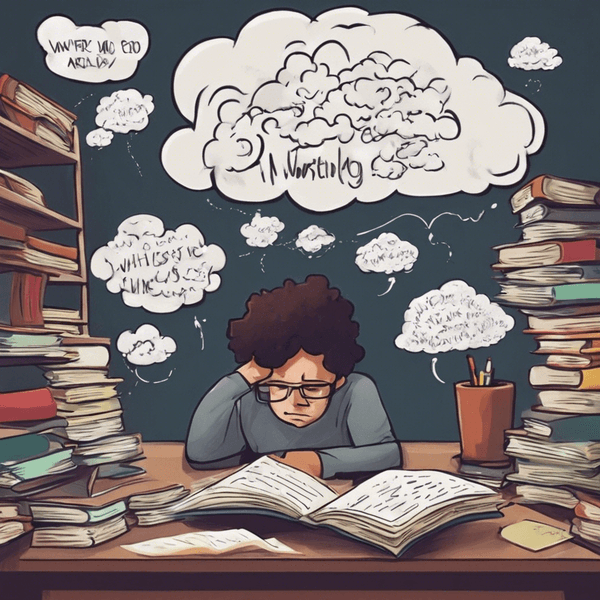I Talked To My Friend About Her Cystic Fibrosis And Wow, CF Patients Are WARRIORS
Not many people can say they've had a double lung transplant.
Forty percent of the United States lives with a chronic disease. These diseases are unique in their own way, but one thing is the same — every individual who lives with a chronic condition faces obstacles because of their disease.
Not only do these illnesses require a lot of education for the individuals who have them, but for the community as a whole. The more we as a society know about these diseases, the more well-rounded (and ideally, helpful) we'll be. If anything, we'll have a greater appreciation for the strength individuals with chronic conditions show on a daily basis.
Today I spoke to my friend, Alissa Katz, about her experience with cystic fibrosis.
Give me a super simple definition of cystic fibrosis.
Cystic fibrosis is a chronic illness that affects several systems, but it primarily hits the respiratory and digestive system.
Are either of those systems — respiratory and digestive — impacted more than the other?
The disease generally focuses on the respiratory system, but my digestive system has been more affected than most other CF patients'.
How so?
The root of the issues is in my nonsense mutations, which give me CF. They're more prone to digestive issues than other mutations. I have a lot more issues with gaining weight. A lot of research has been focused on the respiratory part of the disease, instead of studying what else could be done for the digestive system.
The two go hand in hand — the worse my weight is, the worse my lung function is.
Has your doctor given you an ideal weight — what your healthiest would look like?
It all depends on your BMI — at my peak (when I was around 13 or 14) I weighed 115 lbs. The lowest weight I've been at is 78. The sicker you are, the harder it is to breathe. This means your body burns more calories just trying to get air in and out of your body. If you're burning more calories, you're losing more weight.
How is your diet different because of the digestive impact of your condition?
CF patients are on a high calorie, high-fat diet to try and gain weight. In a broader sense, it's nice to know that good comes from me eating burgers and fries. One of the symptoms of CF is having very salty skin. Our bodies are not absorbing as much salt as we should be — keeping foods as salty as possible is helpful to try and keep this back in our bodies.
Another symptom of CF is malabsorption. That's a disorder that occurs when individuals are unable to absorb nutrients from their diets — this is why I take digestive enzymes (released into the small intestine) to help digest my food.
What other logistical things do you have to think about, other than diet?
This is all pre-double lung transplant.
When I woke up every morning, I'd have to do about 40 minutes of respiratory therapy. This makes sure I have the stamina to get through the day. I also had to time my snacks/meals to correlate with medication (some give better results with food). It's not a big deal, but it's just something to be aware of.
I do tend to lead toward an electrolyte heavy drink like Gatorade to replenish that salt I lose so easily. I recently saw a Pedialyte commercial labeling it an adult drink...not for hangovers, but just for like, life. All good with me!
I have a nut and milk and allergy — this isn't connected to CF necessarily, but it does make it harder to get that high-fat diet. I can't just down a milkshake if I need some more calories. I'm also allergic to avocado — so I can't have some traditionally "healthy" high-fat foods like guac.
To try and make up for this, I was on tube feeds (getting formula through a feeding tube that's inserted through your stomach or small intestine). One of the aspects of my daily routine was putting in my feeding tube before I went to bed, to absorb calories as I went to sleep. This had been part of my nighttime routine since I was 16.
Since I recently got a double-lung transplant, my breathing is better — I'm not burning as many calories trying to breathe. So, I'm currently testing whether I can stay off those feeds and maintain my weight.
How does it feel to be off the feeding tube?
SO GOOD. I don't sleep well during feeds, so not doing them helps me actually sleep through the night.
OK, now that we have some logistics, let's back up. When and how were you diagnosed?
It was a snowy day in December of '89…
I wasn't diagnosed until my birth. The gene for CF was discovered in August of that year, actually. I was diagnosed through meconium ileus (a bowel obstruction that creates a blockage in a part of the small intestine).
Within the first 16 hours of my birth, I was in surgery to remove that blockage. They confirmed the CF diagnosis with a sweat test (again, if your skin was salty enough, that confirmed your diagnosis).
I was in the NICU for two months before being discharged to go home.
How did your parents react?
They had never heard of CF, so even though they did genetic testing before I was born, they couldn't/didn't predict CF. When they found out about the diagnosis, my mom had a very direct "what do I have to do?" attitude. The internet wasn't a resource like it is now, so there was a lot of old-school research involved.
Were things kind of trial and error?
My family called me their Murphy's Law baby. For a lot of things doctors were saying regarding the treatment (that worked for 98 percent of the CF population), I was in the minority. The last 30 years have been trial and error! Studies and drugs that have worked in case studies didn't apply to me.
Most CF research has been targeted toward patients with the delta F508 gene (about 90 percent of the CF population). I am in the 10 percent that doesn't have this gene.
Thankfully, I was able to learn enough about my disease from a young age. I knew I was in the minority and started advocating for myself in regard to what doctors would prescribe me.
Can you give us an example of this?
One of the bigger ones was respiratory therapy. When I was 8, this new therapy came out — "the vest." The vest attached to a machine and shook your upper body in an effort to get enough mucus out of your lungs. That never worked as well as it should have for me — I was small and the vest hurt. But that was the standard! I gave up my vest 10-plus years ago and asked for other means of airway clearance.
One other example is the type of enzyme that I take. There are two or three general ones, but they just didn't work for me. So I did my research and asked what other options were available. Since doing that, I'm on a less common enzyme, but it works much better.
When you were younger, what were the adults in your life told about your condition?
Through grade school, (K-5), the CF Foundation made a pamphlet for teachers that I kept in my backpack. I would give it to my teachers (including gym teachers). My peers weren't really communicated with regarding it — I just wanted to be like everyone else! They didn't need the details. The nurse at school knew, too. I would excuse myself every day to go to the nurse's office and take my enzymes at lunch.
How do you tell people in your adult life about your CF?
Any friendships (from college until now) have known about my CF. It's not an agenda item — it just naturally comes up. Relationships I'm in need to know about my disease because it impacts them, too. I often have prep that needs to happen in regard to respiratory preparations and they are bound to be around for some of it.
I didn't really disclose my condition to my coworkers in my first job until I had to. But in my most recent job, I feel very comfortable disclosing this information (it's a smaller company). Now my coworkers understand how a common cold could actually impact me greatly.
So tell us, how DOES a common cold impact you?
There was one winter where my co-workers were coming in with common colds, thinking it was ok. But I told them that I was admitted into a hospital for two weeks because that cold actually dripped down into my respiratory system for two weeks and damaged my lungs. These cold/flu symptoms are heightened in a CF patient (who are more at risk for infection). Heavier treatments are needed to rid us of that infection.
Tell us about your journey with a double lung transplant.
When you're born with CF, you know you either need a double lung transplant or you're going to die from CF. Five years ago, my CF team suggested I start the transplant process. This started with tests and evaluations to see if I can physically sustain a transplant (blood work, psych, physicals, etc). My team in NYC recommended that I look into another center to increase the likelihood to be accepted as a candidate. I looked into Duke University Medical Center and they were more likely to take me on as a candidate than the hospital I was regularly seen. Two years ago, I came down to Durham for the first time to have them evaluate me.
As a candidate, I was seen at Duke twice a year to keep updated. Then, when I was closer to being listed for a transplant, I moved down there since you have to be within two hours of the transplant center.
So you're put on a list and wait for them to call your number?
I wish it was that simple!
It's based on the region and availability. Once you're listed, you do just sit around and wait. But you also have to do your best to stay as healthy as possible so when you get a call that organs are available, you can sustain the surgery. My center put me in a pulmonary rehab program to help me keep up this stamina.
For them to call you with the news of a potential donor match, certain stipulations need to be met, like blood type, the size of the lungs, and compatible antibodies.
Walk me through what that day looked like.
When I got the call, I had already been put through two dry runs — dry runs are calls where you get to the hospital, prep for the surgery, but it doesn't actually work out. By the third call, I was cautiously optimistic but aware it might be a false alarm.
I got the call at 1 p.m. on a Monday afternoon (I was just leaving rehab). They needed me by 3 p.m. so I had to start fasting immediately. Since I had still been working, I went through my workday as normal but didn't say anything to anyone. I left for the pre-op area at about 2:30.
First, you get an X-ray to see how everything is going and you get a ton of bloodwork done. You also get cleansed with wipes — a hospital's version of a bath — just in case. Then there are several hours of sitting and waiting. We brought my mom's iPad and watched "Below Deck." You want a distraction.
I got a call around 5:30 p.m, telling me it was a go. I was speechless but eventually remembered how my brain worked to ask a couple of questions. I start crying, realize I have about 15 minutes to let my dad and my sister know, hug my mom, and was wheeled off about 6 p.m.
I had an entire nurses station cheering me on as I got wheeled in — that was fun.
I got into the OR, on the table. As a CF patient, I'm accustomed to the ambiance of that kind of room. I wanted to speak to my surgeon, but he was on the treadmill because that's how he prepped... go figure. I looked at the clock at 6:15. After that, I don't remember anything until Tuesday evening.
My family will tell you that I was hilarious under my drug bliss.
Lastly — how has this disease helped you grow?
For better or for worse, this disease has helped define my character. I don't let it define how I live my life, but it has helped my maturity and personality. I learned from a very young age what independence was — being compliant with what needed to be done while still living a "normal" life. I developed my no-bullshit attitude because of CF. I had to learn to take things with a grain of salt and move on. It also helped me define my humor — the best medicine has been to laugh about it. It's kind of dark, but it helps me cope.
"Your results aren't as normal as we'd like them to be."
"Well, I'm not as normal as you'd like me to be."
A lot of people within the CF community are thankful for their disease — a shocking statement, but I absolutely get it.
Alissa Katz is Odyssey's Audience Development Editor.

